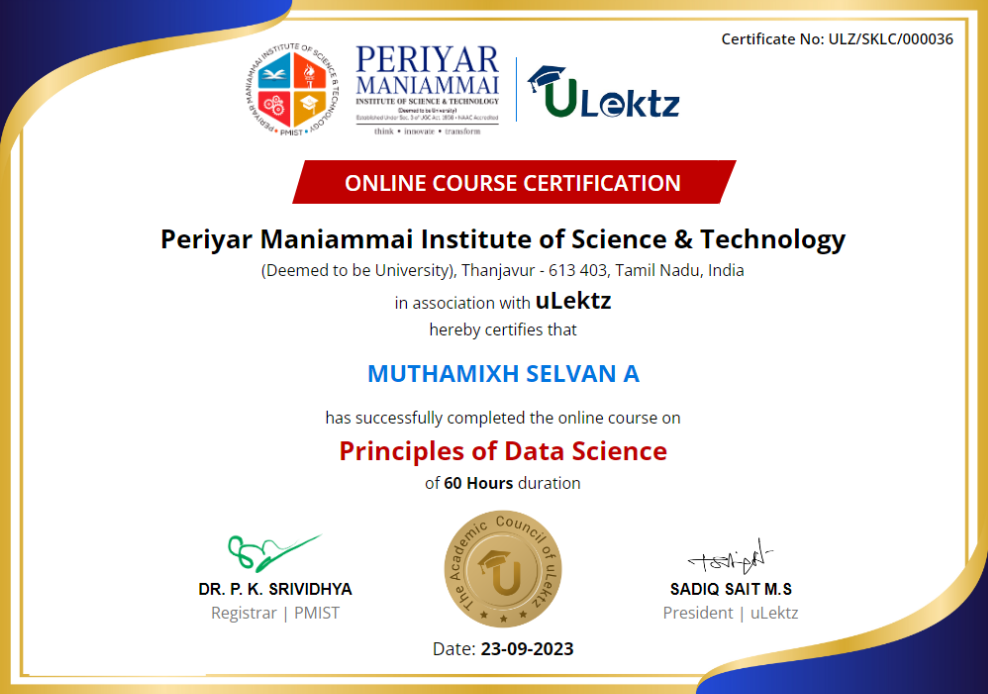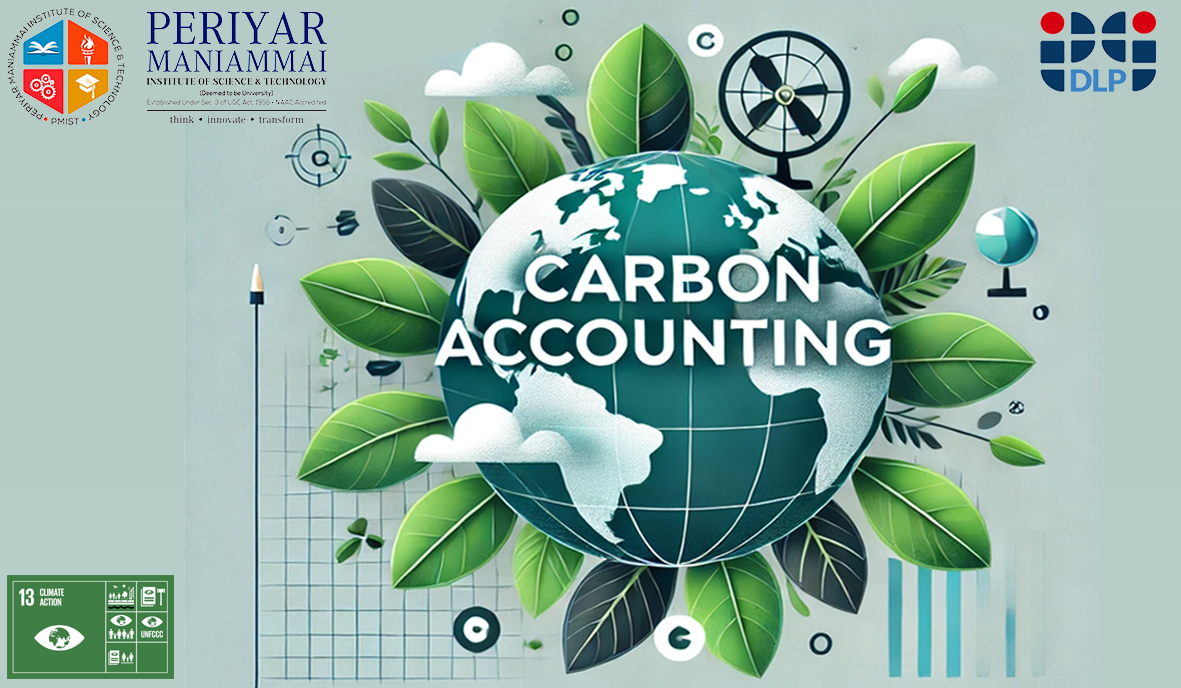

Note: Please check your Spam or Junk folder, in case you didn't receive the email with verification code.
Non-Linear: Random Order
Course Description
This course provides an introduction to carbon accounting, focusing on its role in managing greenhouse gas (GHG) emissions to combat climate change. Students will learn about international standards and tools for calculating carbon emissions, defining carbon footprints, and using lifecycle assessment methods. The course also covers strategies for reducing and offsetting carbon emissions, supported by real-world case studies and practical exercises. In the final unit, students will explore future trends, including carbon markets and trading, with hands-on experience using carbon footprint calculators and related tools.
This foundational module "Introduction to Carbon Accounting and Sustainable Development Goals" introduces carbon accounting principles, Sustainable Development Goals and global climate policies, enabling participants to define carbon accounting, understand SDG 13 (Climate Action), recognize global carbon pricing mechanisms and GHG protocols and analyze leading carbon accounting practices. Learners grasp carbon accounting's significance, SDGs' climate implications, global agreements like the Paris Agreement and carbon pricing mechanisms, laying the groundwork for advanced sustainability concepts.
 Introduction to Sustainable Development and its Goals
Introduction to Sustainable Development and its Goals
 Introduction to Carbon Accounting and SDGs -1
Introduction to Carbon Accounting and SDGs -1
 Introduction to Carbon Accounting and SDGs -2
Introduction to Carbon Accounting and SDGs -2
 Module 1 - Assessment
10 Questions
Module 1 - Assessment
10 Questions
This module "Carbon Accounting Standards and Frameworks" explores global standards, frameworks and initiatives, enabling participants to comprehend GHG protocols, science-based targets, climate disclosure standards, industry-specific challenges, assure carbon reports, manage climate risks and identify opportunities.
 Carbon Accounting Standards and Frameworks
Carbon Accounting Standards and Frameworks
 Module 2 - Assessment
20 Questions
Module 2 - Assessment
20 Questions
This "Carbon Footprint Analysis and Greenhouse Gas Inventory" module provides comprehensive insights into carbon footprint analysis and GHG inventory development, enabling participants to understand carbon footprinting methods, develop organizational GHG inventories, collect and calculate emission data and distinguish between Scope 1, 2 and 3 emissions. Key takeaways include understanding Life Cycle Assessment and GHG Protocol, applying data collection strategies, calculating emissions using activity data and emission factors and aligning with global reporting standards such as CDP and ISO 14064.
 3.1 Carbon Footprint Analysis and GHG Inventory
3.1 Carbon Footprint Analysis and GHG Inventory
 Module 3 - Assessment
10 Questions
Module 3 - Assessment
10 Questions
This "Reporting, Verification and Communication" module enables participants to report carbon emissions effectively, verify climate action plans, communicate progress to stakeholders, manage climate-related risks, identify business opportunities and articulate sustainability achievements, ensuring transparency, accountability and stakeholder engagement.
 4.1 Carbon-Reporting-and-Best-Practices
4.1 Carbon-Reporting-and-Best-Practices
 4.2 Innovation-and-Trends-in-Carbon-Accounting
4.2 Innovation-and-Trends-in-Carbon-Accounting
 4.3 Stakeholder-Engagement-and-Communication-Strategies-in-Carbon-Accounting
4.3 Stakeholder-Engagement-and-Communication-Strategies-in-Carbon-Accounting
 4.4 Reporting, Verification and Communication
4.4 Reporting, Verification and Communication
 Module 4 - Assessment
10 Questions
Module 4 - Assessment
10 Questions
Learners integrate SDGs into business strategy, develop climate change mitigation and adaptation tactics, leverage renewable energy, energy efficiency, carbon offsetting and capture technologies and align business operations with SDG 13.
 SDG Alignment and Climate Change Strategies
SDG Alignment and Climate Change Strategies
 Module 5 - Assessment
10 Questions
Module 5 - Assessment
10 Questions
 Final Assessment
30 Questions
Final Assessment
30 Questions
The certificate issued for the Course will have
Only the e-certificate will be made available. No Hard copies. The certificates issued by Periyar Maniammai Institute of Science & Technology (PMIST). can be e-verifiable at www.ulektzskills.com/verify.



 30 hours Learning Content
30 hours Learning Content 100% online Courses
100% online Courses English Language
English Language Certifications
Certifications